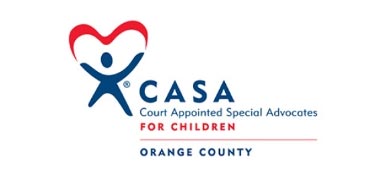
With divorce and remarriage relatively common occurrences, it’s also common for the question of blended families to come up in estate planning. Sometimes when couples embark on second marriages, one or both may already have children from their previous relationships, as well as property and assets they bring into their new marriage. But what happens if the child from the first marriage never develops a relationship with the new spouse—for example, if they live far away, or have already grown to adulthood before their parent is remarried? This may raise the fear that they won’t receive their fair share of their parent’s estate down the line, particularly if their parent is the first to die.
Whatever the situation, how those in a second marriage wish to see their assets passed down to children from previous relationships should be addressed with careful estate planning. This is especially true when an unequal division of assets is contemplated. Without the right legal strategies and trust structure in place, each spouse will be dependent on the good will of their surviving spouse to carry out their wishes. It is essential to discuss your estate planning goals with your financial advisor and an experienced estate law attorney to ensure that your estate plan effectively meets them. Do not leave it to chance that your unattached second spouse will not make changes or will know and carry out your wishes, 10 or 20 years after you have passed away.
The Importance of Careful Planning
California Probate Code § 6400–6455 lays out the order in which a decedent’s heirs will inherit their property if they die without a will (or intestate)—a situation that ideally nobody’s family would ever be in. Going through probate is a costly and time-consuming exercise that leaves inheritance to the application of statutory formulas. In general, when this is the case, the surviving spouse receives the decedent’s half of their community property and a portion of the decedent’s separate property. How much children receive depends on how many children and/or grandchildren there are.
A central goal of most estate plans is to avoid the probate process entirely, often by setting up a trust. For blended families, it can be extremely helpful to meet with a financial advisor to get a full picture of the assets to be distributed and to discuss general estate planning goals before meeting with an attorney. This can help determine the best strategy for different types of accounts.
For example, one possible way to leave specific assets to a child from a first marriage is to segregate the funds into an account that names them as the primary beneficiary. A more complex strategy may be necessary, however, if you want your estate to support your surviving spouse before remaining assets are passed to the child or children of your first marriage. Your attorney will help devise the best way to accomplish your planning goals and then draft the legal documents necessary to carry them out.
Ideally, your estate planning attorney and your financial advisor will work together to ensure that everything is executed properly. If a trust is established, assets will need to be retitled to the trust ownership to keep them out of probate. Another important step is naming proper beneficiaries for retirement accounts, insurance policies, annuities, and other accounts. Overlooked details can prove to be costly, so it is best to work with experienced professionals who understand your situation and goals.
Peace of Mind for You and Your Family
When couples who have children from previous relationships marry, the inheritance questions that arise can be complicated. A well-crafted, thoughtful estate plan is essential for ensuring that assets are passed down fairly and according to the parents’ wishes. Such a plan can also be a powerful tool for avoiding family disputes that arise when expectations and wishes are unclear.
The expert estate law attorneys at NM Law are skilled in creating individualized estate plans for the most complex situations, including those for blended families. We’ll help you understand your options for protecting your assets, avoiding probate, and distributing your assets as you see fit. To schedule a consultation, contact us here today.
Testimonials
Charities We Support
We dedicate pro bono time, volunteer services, and a percentage of our gross revenue to these organizations. In 2023, we sponsored a refugee family of five to come to the United States and start a new life.
Each year our law firm decides as a group which charities to assist with our time, money, and expertise. Please feel free to click on any of the charities below and make a donation of your own.


















